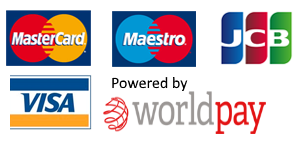Thank you to Len Bunton from Bunton Consulting Partnership for our latest guest blog. Here, Len discusses challenges in the UK construction industry, particularly concerning payments and cash flow issues, offering recommendations to guide businesses through these challenging times
Introduction – Len’s thoughts
“I am grateful for the agreement of NAS to send out this blog to its membership and to share increasing concerns about payment and cash flow issues in the construction industry in the UK.
I have recently been involved with a number of contractors in dealing with payment and cash flow issues, and coping with numerous issues over multiple projects can be overwhelming. It might be helpful to consider a few strategies to navigate through these challenges, so here are some of my suggestions and recommendations.”
Create a contract review panel
One strategy some organisations have found helpful is establishing a Contract Review Panel. This panel, consisting of experienced individuals, can swiftly assess contracts you’re considering bidding for. They pinpoint high-risk clauses, enabling you to discuss these with the tendering party and potentially negotiate their removal or reduction in impact. This process is best done during the tender stage, rather than after your tender has been accepted, allowing you to make an informed decision about proceeding with the contract.
Payment schedules
It’s highly advisable to incorporate them into your contracts. A Payment Schedule outlines application dates, required documentation, due dates, final payment dates, and when a Payless notice must be issued. Adhering strictly to these dates is crucial. Ensure your commercial managers are well-aware of these dates to submit applications promptly. Failure to do so might result in your application being deferred to the next payment cycle, affecting your business’s cash flow.
An important consideration is ensuring payment schedules account for project extensions, such as when a job runs beyond the schedule’s last date, ensuring it is extended until practical completion.
Payment applications
Payment application rejections or reductions often occur due to insufficient supporting information. It’s better to provide too much information than too little. Promptly follow up each payment application with a call to the contractor, verifying that they have all necessary information to process your application. This proactive approach prevents surprises at month-end that could significantly impact your cash flow.
Sending Notices
Adherence to contract specifications about sending notices is essential. Whether it specifies email, registered post, individuals, or organisations for notice delivery, comply accordingly to avoid discrepancies.
Delayed payments
In instances of delayed payments, consider issuing a notice to suspend obligations as stipulated in the contract. This action often serves as a wakeup call to both the contractor and the employer to prioritise timely payments.
Troubled signs
Remaining attentive to signs of delayed or reduced payments from the contractor or employer is crucial. Sharing information with other subcontractors can provide early indicators of financial difficulties that might lead to insolvency, helping you prepare accordingly.
Record Keeping
Documentation is paramount. Email communication confirming delays or issues beyond your control, along with timely notification of delays and reasons to the contractor or employer, is essential. Remember, adhering to the contract’s provisions regarding extensions of time and loss and expense claims is essential for compliance.
Quality Improvement Initiative
Consider embracing quality improvement initiatives within the industry, such as the Quality Improvement Initiative, to enhance project quality and compliance. The Quality Improvement Initiative is a major step forward to ensure that quality is improved on all construction projects.
Additional Resources
Additionally, taking advantage of mechanisms like Low Value Adjudication Procedures or Conflict Avoidance Processes (CAP), such as the RICS Conflict Avoidance Pledge, can significantly aid in resolving disputes promptly and prevent their escalation: www.rics.org/capledge
Final thoughts
Ultimately, maintaining vigilance over cash flow and fostering relationships with contractors and employers who prioritise their supply chain is crucial. Choosing to work with organisations that consistently cause issues might not be worth the hassle. The industry is facing challenges, and while efforts to improve procurement practices are ongoing, it’s vital to adapt and navigate these challenges strategically. NAS is an excellent resource for technical and commercial matters, providing valuable support to its members in navigating these complex industry dynamics.


